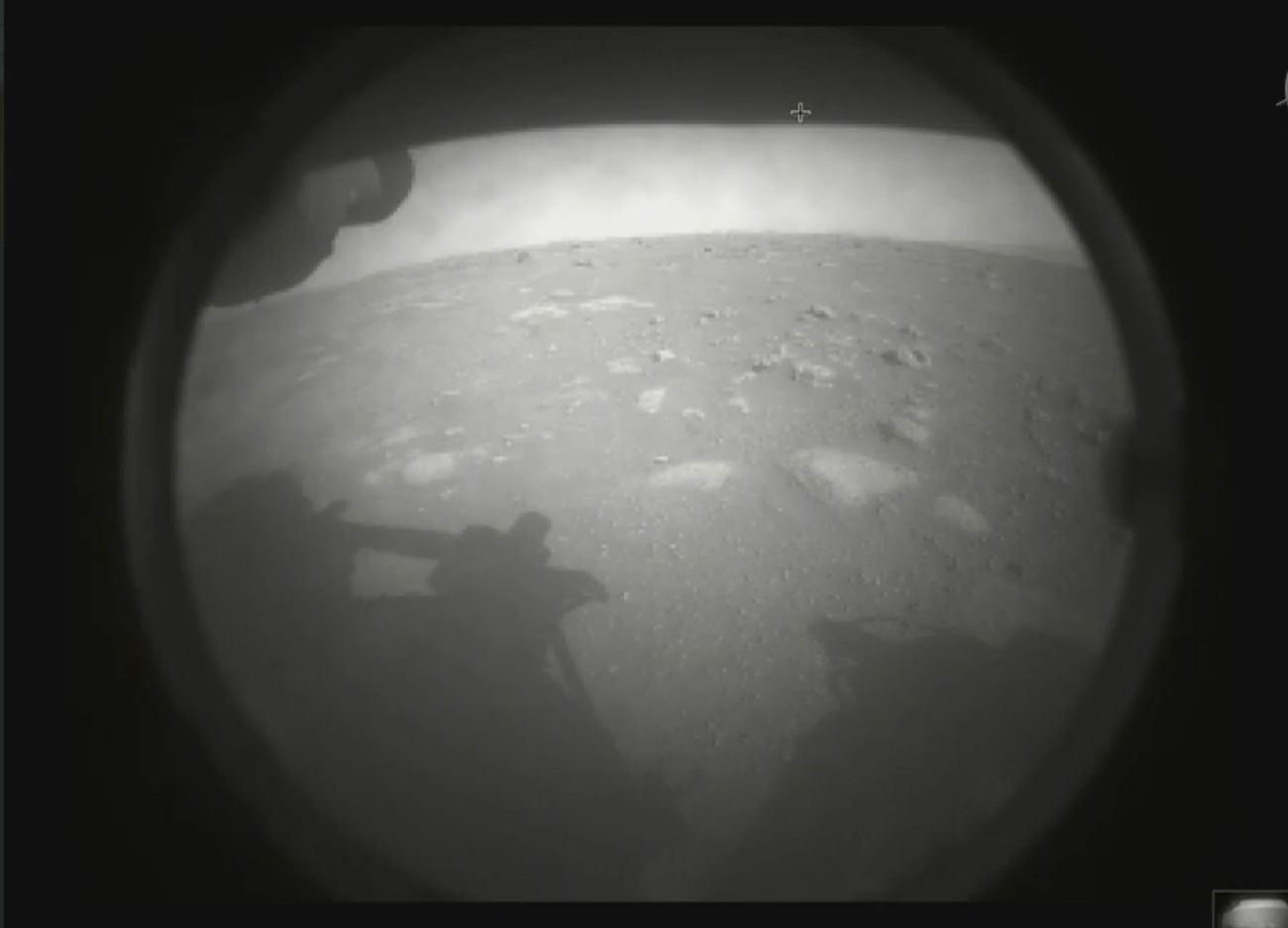
Martian moons have common origin, say Zurich scientists

The two moons of Mars, long a source of puzzlement for scientists, were originally one, according to new research from the Federal Institute of Technology Zurich ETH.
Deimos and Phobos, discovered in 1877, have long been thought to be asteroids drawn into the Red Planet’s orbit. But using computer simulations, scientists have concluded they are rather the remains of a single larger Martian moon that was broken apart between 1 and 2.7 billion years ago, ETH Zurich said in a press releaseExternal link.
Captured objects would be expected to follow an eccentric – at a random inclination – around the planet. However, the orbits of the Martian moons, which look like potatoes, are almost circular and move in the equatorial plane of Mars. This is what led the team to study the problem in the first place, according to the press release.
According to the study, Deimos is moving slowly away from Mars, while Phobos is expected to crash into it in 39 million years’ time or be destroyed by gravitational forces in the meantime.
A Japanese probe scheduled to be launched in 2025 will explore Phobos and return samples to Earth. The ETH Zurich researchers expect that these samples will provide details about the interior of the Martian moons that will enable more precise calculations of their origin.

More
‘Awesome’ to be involved in historic Mars rover landing, says Swiss firm

In compliance with the JTI standards
More: SWI swissinfo.ch certified by the Journalism Trust Initiative




























You can find an overview of ongoing debates with our journalists here . Please join us!
If you want to start a conversation about a topic raised in this article or want to report factual errors, email us at english@swissinfo.ch.